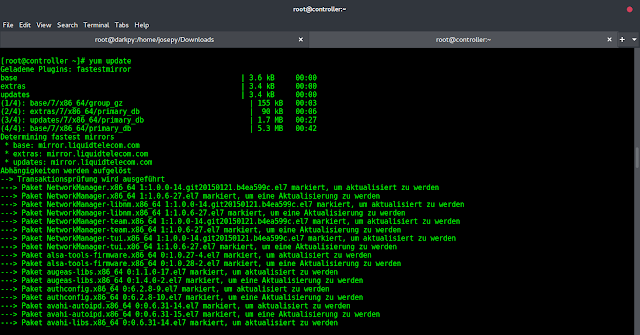Given an integer N, the task is to find the smallest and the largest N digit numbers which are also perfect cubes.
Examples:
Input: N = 2
Output: 27 64
27 and 64 are the smallest and the largest 2-digit numbers which are also perfect cubes.
Input: N = 3
Output: 125 729
Approach: For increasing values of N starting from N = 1, the series will go on like 8, 64, 729, 9261, ….. for the largest N-digit perfect cube whose Nth term will be pow(ceil(cbrt(pow(10, (n))))-1, 3).
And 1, 27, 125, 1000, ….. for the smallest N-digit perfect cube whose Nth term will be pow(ceil(cbrt(pow(10, (n – 1)))), 3).
Below is the implementation of the above approach:
C++
// C++ implementation of the approach#include <bits/stdc++.h>using namespace std;// Function to print the largest and// the smallest n-digit perfect cubevoid nDigitPerfectCubes(int n){ // Smallest n-digit perfect cube cout << pow(ceil(cbrt(pow(10, (n - 1)))), 3) << " "; // Largest n-digit perfect cube cout << (int)pow(ceil(cbrt(pow(10, (n)))) - 1, 3);}// Driver codeint main(){ int n = 3; nDigitPerfectCubes(n); return 0;} |
Java
// Java implementation of the approachclass GFG { // Function to print the largest and // the smallest n-digit perfect cube static void nDigitPerfectCubes(int n) { // Smallest n-digit perfect cube int smallest = (int)Math.pow(Math.ceil(Math.cbrt(Math.pow(10, (n - 1)))), 3); System.out.print(smallest + " "); int largest = (int)Math.pow(Math.ceil(Math.cbrt(Math.pow(10, (n)))) - 1, 3); System.out.print(largest); } // Driver code public static void main(String args[]) { int n = 3; nDigitPerfectCubes(n); }} |
Python3
# Python3 implementation of the approach from math import ceil# Function to print the largest and # the smallest n-digit perfect cube def nDigitPerfectCubes(n): # Smallest n-digit perfect cube print(pow(ceil((pow(10, (n - 1))) ** (1 / 3)), 3), end = " ") # Largest n-digit perfect cube print(pow(ceil((pow(10, (n))) ** (1 / 3)) - 1, 3)) # Driver code if __name__ == "__main__": n = 3 nDigitPerfectCubes(n) # This code is contributed by Rituraj Jain |
C#
// C# implementation of the approachusing System;class GFG { // Function to print the largest and // the smallest n-digit perfect cube static void nDigitPerfectCubes(int n) { // Smallest n-digit perfect cube int smallest = (int)Math.Pow(Math.Ceiling(MathF.Cbrt((float)Math.Pow(10, (n - 1)))), 3); Console.Write(smallest + " "); int largest = (int)Math.Pow(Math.Ceiling(MathF.Cbrt((float)Math.Pow(10, (n)))) - 1, 3); Console.Write(largest); } // Driver code static void Main() { int n = 3; nDigitPerfectCubes(n); }}// This code is contributed by mits |
PHP
<?php// PHP implementation of the approach// Function to print the largest and// the smallest n-digit perfect cubefunction nDigitPerfectCubes($n){ // Smallest n-digit perfect cube print(pow(ceil(pow(pow(10, ($n - 1)),1/3)), 3)." "); // Largest n-digit perfect cube print((int)pow(ceil(pow(pow(10, ($n)),1/3)) - 1, 3));}// Driver code$n = 3;nDigitPerfectCubes($n);// This code is contributed by mits?> |
Javascript
<script>// javascript implementation of the approach// Function to print the largest and// the smallest n-digit perfect cubefunction nDigitPerfectCubes( n){ // Smallest n-digit perfect cube document.write( Math.pow(Math.ceil(Math.cbrt(Math.pow(10, (n - 1)))), 3) + " "); // Largest n-digit perfect cube document.write( Math.pow(Math.ceil(Math.cbrt(Math.pow(10, (n)))) - 1, 3));}// Driver code let n = 3; nDigitPerfectCubes(n); // This code contributed by aashish1995 </script> |
125 729
Time Complexity: O(log n)
Auxiliary Space: O(1)
Ready to dive in? Explore our Free Demo Content and join our DSA course, trusted by over 100,000 neveropen!

